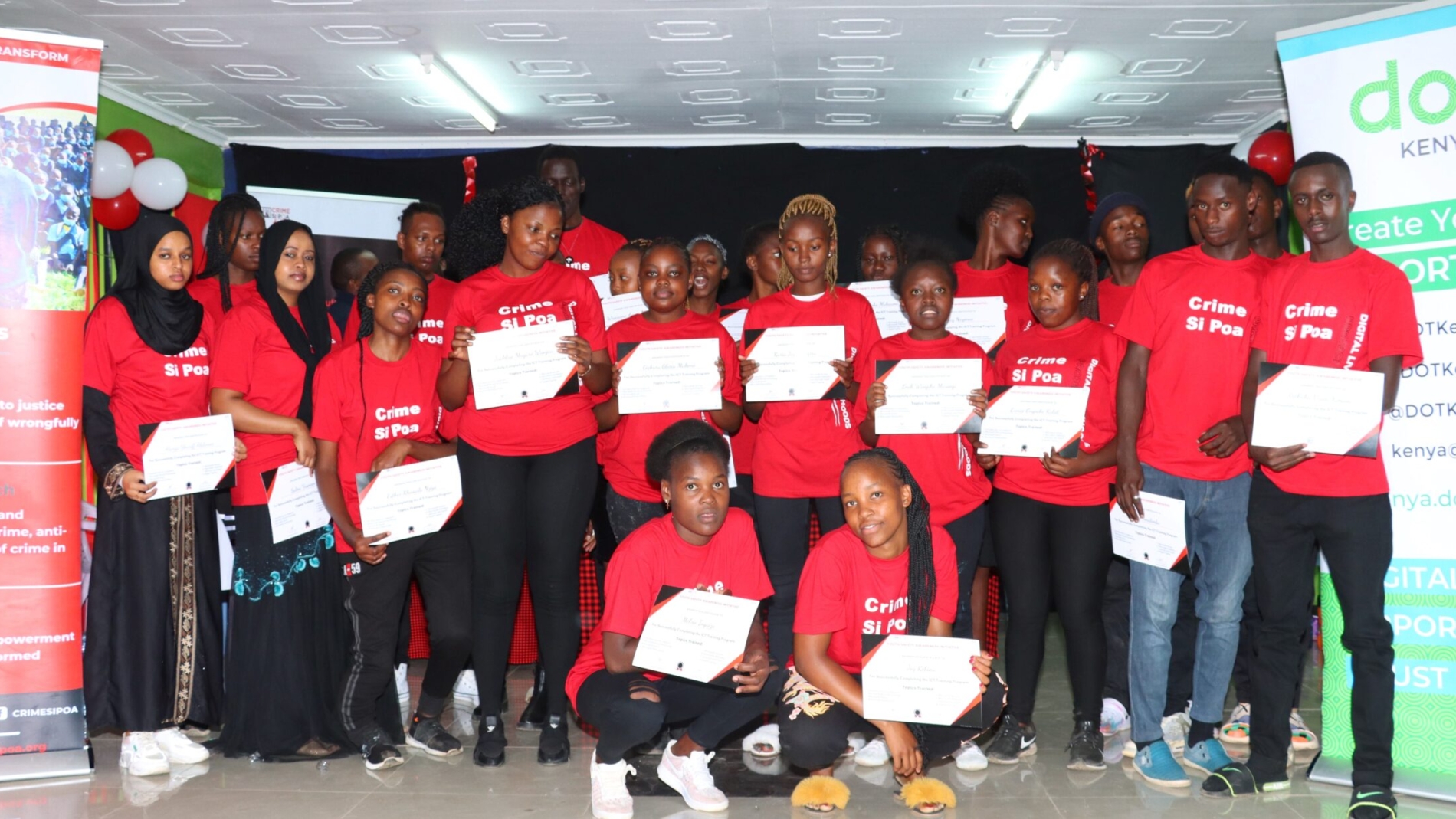Youth unemployment is a critical issue that affects countless young people worldwide. In Kenya, the largest population of Kenyans falls under the youth bracket (18-35) at 75 percent according to the 2019 population census.
Unemployment rates among the youth are equally high given that more than one million graduates annually continue to add to the number of unemployed. It is a multifaceted problem with far-reaching consequences, not only for the affected individuals but also for society and the economy as a whole
This is a situation that Omar Hawa got caught up in 2022 when she cleared her form four. “ I wanted to study clinical medicine at Kenya Medica Training College (KMTC) but my grade (C-) limited me. My mother’s limited resources also contributed a great deal. Coming from a single-parent family made it tough for me,” says Hawa.
Being the second born in a family of three, Hawa says her elder brother had successfully finished college but had not secured any meaningful employment, equally making him dependent on their mother even as their younger sister was still in school.
Hawa says she was forced to stay at home a whole year, with the hope that she could get a sponsor to take her to college. “I had to shed off my desire to pursue medicine and accept anything that would come my way,” she adds
One day, as Hawa was wondering through Kajiado town where she resides, she overheard a conversation about an organization enrolling young people in a digital livelihood program, a course aimed at training them in various skills related to the digital world such as typing, data entry, computer literacy, and packages. It was an opportunity for the underprivileged youth to acquire marketable skills and secure decent jobs.
Hawa’s eyes lit up with hope. She knew that this might be her chance to build a better future for herself and her family. Without wasting any time, she rushed home to share the news with her mother. Despite her initial skepticism, the mother recognized her determination and agreed to let her enroll in the program.
The course was intense and challenging but was relentless in her pursuit of knowledge. She attended classes diligently, often staying up late to grasp complex concepts. She mastered the art of customer service, developing excellent communication and problem-solving skills.
After two months elapsed, Hawa among other 38 students graduated from the Digital Livelihood Program. She was proud of her achievement and couldn’t wait to apply her newfound skills.

“Am happy that by the time of graduation, I had secured employment as a receptionist in an organization based in Karen. As a side hustle, I now also type documents for people, do online writing, and apply for Kenya Revenue Authority (KRA) Pins for those who do know how to do it. This gives me extra cash to support my family, she excitedly says.
Digital Livelihood Project Officer at Crime Si Poa Ms. Phanice Kimutai says there is a great need to prepare the youth with digital skills as the world is moving towards digitalization. This, she says, helps them become innovative and stop relying on white-collar jobs. She adds that the program also encourages youth to volunteer in advocating against criminal behavior in their respective regions with the greatest motivation being to reach the entire community with anticrime messages.
“This is the 5th cohort we are training and graduating. So far, we have reached 135 youths in Kajiado county. As we equip them with digital livelihood skills, we are also working with them as volunteers to campaign against crime and sensitize the community on dangers, “she adds.
Speaking during the graduation ceremony, Director, of Youth Governance in Action Mr. Eugine Simiyu applauded Crime Si Poa’s initiative terming it a positive response towards embracing technology.
Simiyu added that ICT offers an exciting and diverse range of career opportunities for youth, a chance to be at the forefront of innovation, financial rewards, and the ability to make a meaningful impact in a rapidly changing world. “For young individuals interested in technology and willing to embrace lifelong learning, venturing into ICT can be a wise and fulfilling choice as it offers self-employment, exposes one to the global world in the comfort of their homes, and offers e-economic transformation.















